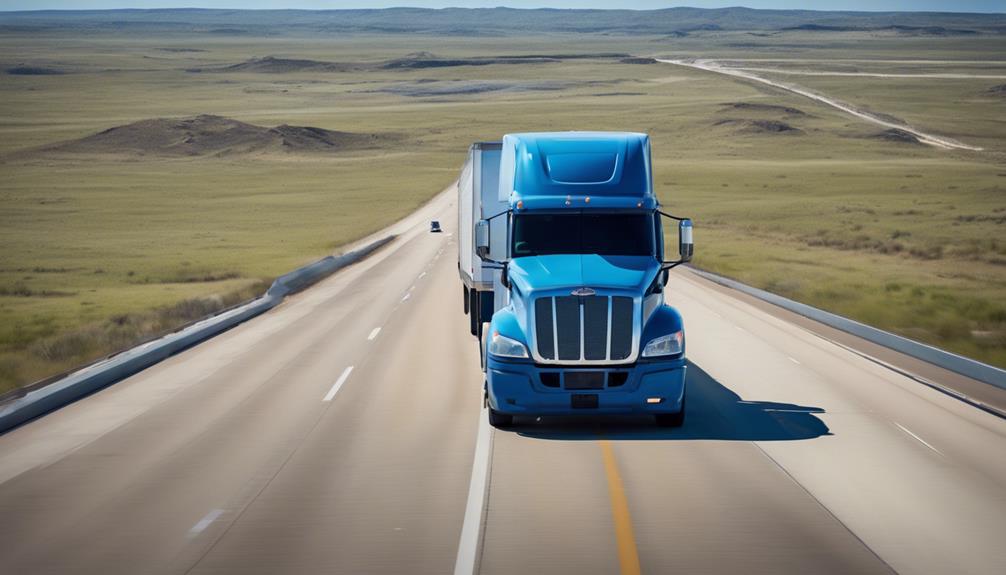If you're involved in commercial transportation in Texas, understanding the Over Axle and Over Gross Weight Tolerance Permit Bond is essential. This bond not only ensures compliance with state regulations but also allows you to operate on designated routes that accommodate heavier loads. You might wonder how this bond can impact your operations or what the application process entails. These aspects are crucial for maintaining efficiency and legality in your business. So, what exactly do you need to know to navigate this requirement effectively?
Understanding Weight Tolerance Permits

Typically, weight tolerance permits are essential for truck drivers and businesses to navigate the complexities of transporting goods without exceeding legal limits. These permits allow you to carry loads that exceed the standard weight restrictions, providing flexibility in your operations. With these permits, you can transport heavier loads, which can lead to increased efficiency and cost savings.
Understanding these permits is crucial because they come with specific guidelines and limitations. You need to be aware of the exact weight limits allowed under the permit and ensure your vehicle complies with those specifications. Carrying excess weight without proper permits can lead to hefty fines and penalties, which could impact your business's bottom line.
Moreover, weight tolerance permits often vary by state, so it's vital to familiarize yourself with Texas regulations if you operate within the state. This knowledge not only helps you stay compliant but also allows you to optimize your delivery schedules.
Eligibility Requirements
To qualify for a Texas Over Axle and Over Gross Weight Tolerance Permit, you must meet specific eligibility requirements that ensure your vehicle and load comply with state regulations.
First, your vehicle needs to be registered and titled in Texas. If it's a commercial vehicle, it must have the proper operating authority.
Next, your vehicle's weight must exceed standard limits, but it should fall within the allowable tolerance set by the Texas Department of Transportation.
Additionally, you must have a clear understanding of your load's nature and its potential impact on public safety and infrastructure.
You should also possess a valid insurance policy that covers your vehicle and load, as well as any potential liabilities.
Remember, maintaining proper documentation for your vehicle and load is crucial.
Lastly, you need to be in good standing with the Texas Department of Motor Vehicles and have no outstanding fines or violations.
Meeting these requirements not only helps you secure the permit but also ensures safe and compliant transportation on Texas roads.
Application Process

When you're ready to apply for a Texas Over Axle and Over Gross Weight Tolerance Permit, gather all necessary documentation first. You'll need to ensure you have everything in order to streamline the process.
Start by visiting the Texas Department of Motor Vehicles (TxDMV) website, where you can find the application form specifically for the permit.
Fill out the application carefully, providing accurate details about your vehicle, the load you're carrying, and your intended route. It's important to include any specific information requested, as missing details can lead to delays.
Once you've completed the form, you'll submit it either online or through the mail, depending on the options provided.
After submitting your application, keep an eye on your email or mailbox for any updates. The processing time can vary, so be patient but proactive.
If you don't hear back within a reasonable timeframe, follow up to check on the status.
Required Documentation
After submitting your application for the Texas Over Axle and Over Gross Weight Tolerance Permit, you'll need to gather specific documentation to support your request.
Start with proof of vehicle ownership, which can include the title or registration documents. You'll also need to provide a detailed description of the vehicle, including its make, model, weight, and dimensions.
Next, you must include a copy of your current insurance policy that meets Texas requirements. This ensures your vehicle is adequately covered while operating under the permit.
Additionally, prepare any relevant inspection reports, particularly if your vehicle has undergone modifications that affect its weight capacity.
It's also helpful to gather documentation demonstrating the necessity of the permit, such as contracts or delivery schedules that justify the need for exceeding standard weight limits.
Finally, be ready to present any permits or permissions from local jurisdictions if required by your route.
Having all of this documentation organized will streamline the review process and increase your chances of receiving the permit efficiently.
Ensure everything is accurate and up-to-date to avoid delays.
Costs and Fees

How much will you need to budget for the Texas Over Axle and Over Gross Weight Tolerance Permit? The costs can vary depending on several factors, including the weight of your vehicle and the specific routes you'll be traveling.
Generally, you'll pay a fee for the permit itself, which can range from $10 to $100. This fee is often determined by the excess weight you're carrying.
Additionally, you may need to consider compliance requirements, such as obtaining a Fuel Tax Bond, especially if your operations involve fuel sales or distribution.
In addition to the permit fee, you may also need to consider the cost of a bond, which is typically required to ensure compliance. Bond costs can vary widely, but you can expect to pay a premium based on your vehicle's weight and your overall driving history.
Don't forget about potential additional fees. These might include administrative costs from the Texas Department of Transportation or any necessary inspections.
It's a good idea to consult with a local permitting office or your trucking company for specific costs relevant to your situation. By planning ahead and understanding these expenses, you can make sure you're fully prepared to handle the financial aspects of obtaining your permit.
Compliance and Regulations
Navigating compliance and regulations for the Texas Over Axle and Over Gross Weight Tolerance Permit is crucial for ensuring a smooth operation. You need to familiarize yourself with the specific weight limits established by the Texas Department of Transportation (TxDOT). These limits vary based on vehicle type and configuration, so it's essential to understand how your vehicle fits into these categories.
You'll also need to keep track of any required documentation. Having your permit bond in order shows that you're financially responsible for any potential violations.
Make sure to maintain accurate records of your vehicle's weight and any loads you carry, as this information may be requested during inspections.
Additionally, it's important to stay updated on any changes in regulations. Texas laws can evolve, and being aware of amendments can save you from potential fines or penalties.
Ensure that your drivers are trained on compliance requirements as well, as they play a key role in adhering to regulations on the road.
Benefits of the Permit Bond

Understanding the benefits of the Texas Over Axle and Over Gross Weight Tolerance Permit bond can significantly enhance your operations.
First and foremost, this bond provides you with the legal assurance needed to transport heavy loads safely and legally across Texas. By securing this permit, you avoid the hefty fines associated with overweight violations, which can quickly add up and disrupt your business.
Additionally, having this bond in place grants you access to designated routes specifically approved for heavier vehicles. This means you can optimize your delivery schedules and improve efficiency, ultimately saving you time and money.
You'll also enjoy peace of mind knowing that you're in full compliance with state regulations, reducing the risk of unexpected roadblocks.
Furthermore, the bond can improve your company's reputation. Clients and partners will appreciate your commitment to following regulations, which may lead to more business opportunities.
Conclusion
In conclusion, securing the Texas Over Axle and Over Gross Weight Tolerance Permit Bond is essential for your commercial vehicle operations. It not only ensures compliance with state regulations but also opens up new opportunities for your business. By understanding the requirements and following the application process, you can transport heavier loads safely and legally. Don't overlook the advantages this bond offers—enhanced reputation, reduced penalties, and greater operational flexibility can significantly impact your success.


